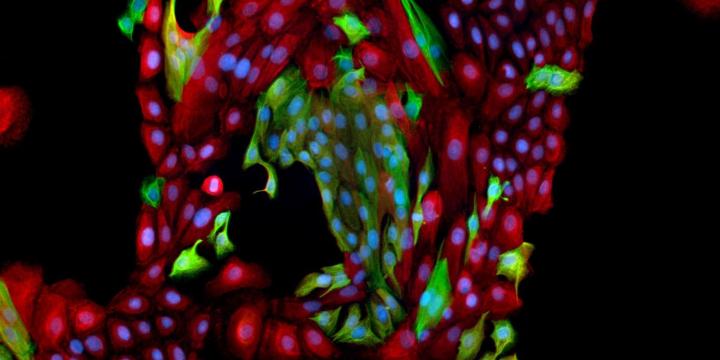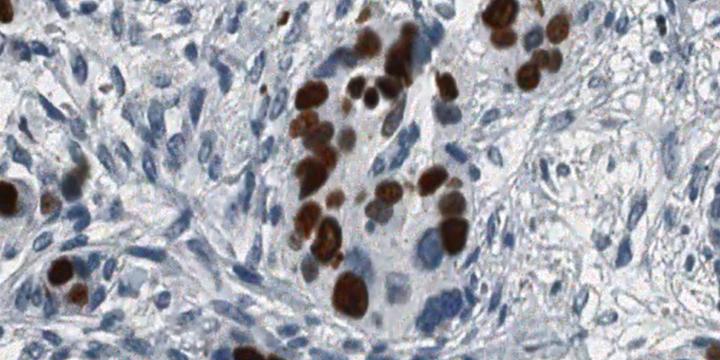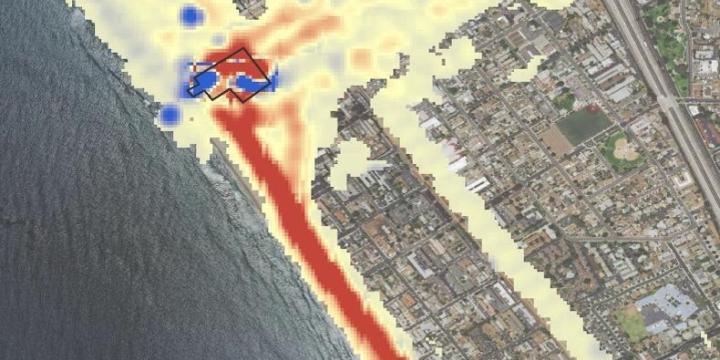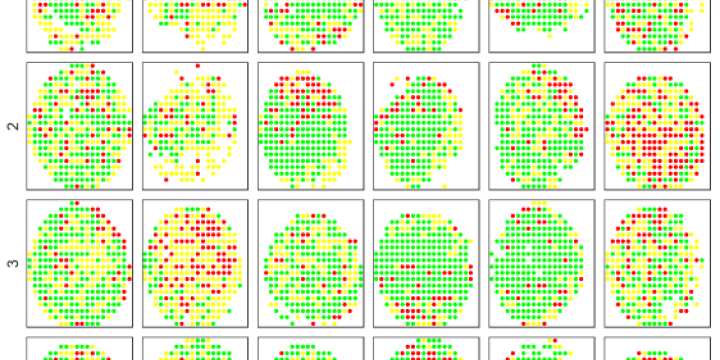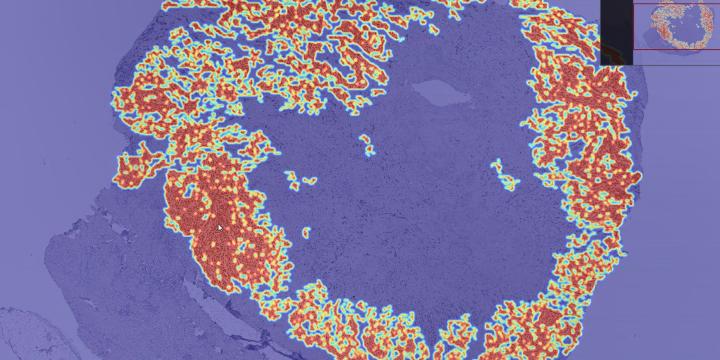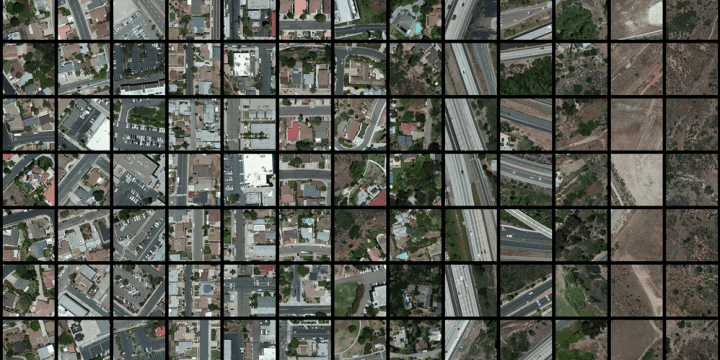Population Facing Research (PFR) Core
The Population-Facing Research Shared Resource (PFR-SR), established as a Developing SR in January 2018, aims to provide state-of-the-art technology services and consultation for population-facing researchers research (e.g. real-time evaluation of pollution exposures in individuals commuting in Los Angeles traffic; high-resolution genetic admixture studies with precise identification of Indigenous and African tribal ancestry; device technology to measure the impact of a behavioral intervention on movement – sitting, standing, walking, running).
Population-facing research is becoming more complex; increasingly studies incorporate device technology, high-resolution genetic admixture analysis, and evaluate, in real-time, the interaction between trial subjects and the built environment. In response, the PFR-SR provides services that 1) require high-level expertise and 2) cannot be accomplished by single investigators alone in a cost-effective manner. Users include all five COHCCC programs and reflect the breath of scientific expertise of COHCCC population-facing researchers.
Many of our services are information technology-based and/or consultation and design, therefore our overhead is low; this allows us to be nimble and rapidly respond to the rapidly changing technology needs of our users.
PFR-SR services are focused on NIH/NCI-funded science and determined by a survey of key members. Key services are vetted by the Shared Resources Steering Committee, PFS-SR Internal Advisory Board, and our COHCCC External Advisory Board. The PFR-SR Director meets biannually with SR Leaders from Research Pathology and Biostatistics & Mathematical Oncology. This bi-directional communication ensures that 1) PFR-SR services synergize with services provided by other SRs and are non-duplicative and 2) there is seamless translation of data and information from one SR to the next.
Specific Aims of PFR-SR:
Aim 1. Develop curation and analytic tools to evaluate cancer risk on multiple levels of scale (populations - cohort curation; neighborhoods - real-time analysis of the built environment; individuals - evaluate movement of individuals participating in risk-assessment and behavioral trials).
Aim 2. Provide tools to investigate the impact of ancestry and environmental exposures on cancer risk.
Aim 3. Consultation and experimental design expertise for new and established investigators.
Members Utilization by %Revenue 2017–21: 100 Total (14.1 MCBC, 2 DCT, 0.3 CI, 0.9 HM, 82.7 CCPS)
Publications by Members: 34, 7 with Impact Factor >10
Grants Supported: 21 Total (1 DoD, 10 NCI of 17 NIH (11 R01, 2 U01))
The Population Facing Research (PFR) Core facilitates research that integrates analyses at several different scales to provide insight into cancer. Services include genetic ancestry analysis, cellular microenvironments and microarrays, biomarker validation (including digital analysis of cell/tissue images and immunohistochemistry), geospatial analysis, and wearable sensors for behavior monitoring. The PFR Core is advised by faculty experts in each area and provides mentorship around designing studies and basic training in analytic software like R and Python so that researchers can better interpret their results.
The PFR Core utilizes Pathcore and VisioPharm for image analysis and is equipped with the following:
- Biocare IntelliPath Automated Immunostainer
- ePathology Scanner AT2 (slide scanner)
- Quanterix 2470 Arrayer
- Photolithography rig
- microdissecting scope
- Tissue-Tek Prisma Plus Automated Slide Stainer (autostainer)
- Tissue-Tek TEC 6 (tissue embedder)
- Tissue Tek VIP 6 AI Vacuum Infiltration Processor (tissue processer)
- Tissue-Tek Cryo3 Flex Cryostat (cryostat)
- Genotyping platforms
The core offers services in six primary areas:
- ancestry analysis
- biomarker analysis
- geospatial services and analysis
Please visit the City of Hope Spatial Datasets Hub for current and historical geospatial data on environmental, social, cultural, and health-related topics, as well as a spatial overview of the COH catchment area. Data are available for a variety of spatial scales and extents (depending on source).
View Geospatial Data - wearable sensors for behavior monitoring
- cell/tissue image processing
The PFR Core staff are leading experts in a variety of disciplines and have extensive experience with multi-scale and translational research. Funding for the core is provided by City of Hope’s Cancer Center Support Grant (CCSG), which is funded by the National Cancer Institute and by additional institutional support.
To request or initiate services, please login or register via iLab Solutions. For questions about ancestry, biomarker, and microarray applications contact Victoria Seewaldt at vseewaldt@coh.org. For questions about geospatial and sensor analytics contact Marta Jankowska at mjankowska@coh.org.
The PFR Core provides curated spatial data related to cancer incidence, risk, and disparities for the COH catchment/service area, California, and the US. Please see the link below for more details, and example projects below. If you are ready to incorporate spatial data and analysis into your project, you can submit a request for a free consultation and quote through iLab.
Example Projects
View City of Hope example projects below:
- Preterm birth and housing insecurity in SF/Oakland
- CalEnviroScreen >>
- CA Regional Opportunity Index >>
- Transportation Noise Pollution >>
Data Categories
Explore the different spatial data categories of City of Hope:


Associate Professor, Department of Population Sciences


Victoria Seewaldt, M.D., the Ruth Ziegler Chair and professor in the Department of Population Sciences, is an accomplished clinician and researcher devoted to improving her patients' lives and the community at large. She has led community outreach education efforts on cancer prevention through personal well-being and directed research to find biomarkers that can be used for early cancer detection, particularly triple-negative breast cancers that are exceptionally resistant to treatment. View Full Bio >>
Jesuchristopher Joseph, Ph.D.
Staff Scientist
jjoseph@coh.org
626-218-3491
Meagan Razo, B.S., HT (ASCP)
Research Associate II
mrazo@coh.org
626-218-0684
Calvin Tribby, Ph.D.
GIS Analyst
ctribby@coh.org
Contact the Team
To request or initiate services, please login or register via iLab Solutions. For any additional questions, please contact Victoria Seewaldt.
- Biocare IntelliPath automated immunostainer
- ePathology Scanner AT2 (slide scanner)
- Quanterix 2470 arrayer
- Photolithography rig
- Microdissecting scope
- Tissue-Tek Prisma Plus automated slide stainer (autostainer)
- Tissue-Tek TEC 6 (tissue embedder)
- Tissue Tek VIP 6 AI vacuum infiltration processor (tissue processer)
- Tissue-Tek Cryo3 flex cryostat (cryostat)
- Genotyping platforms
